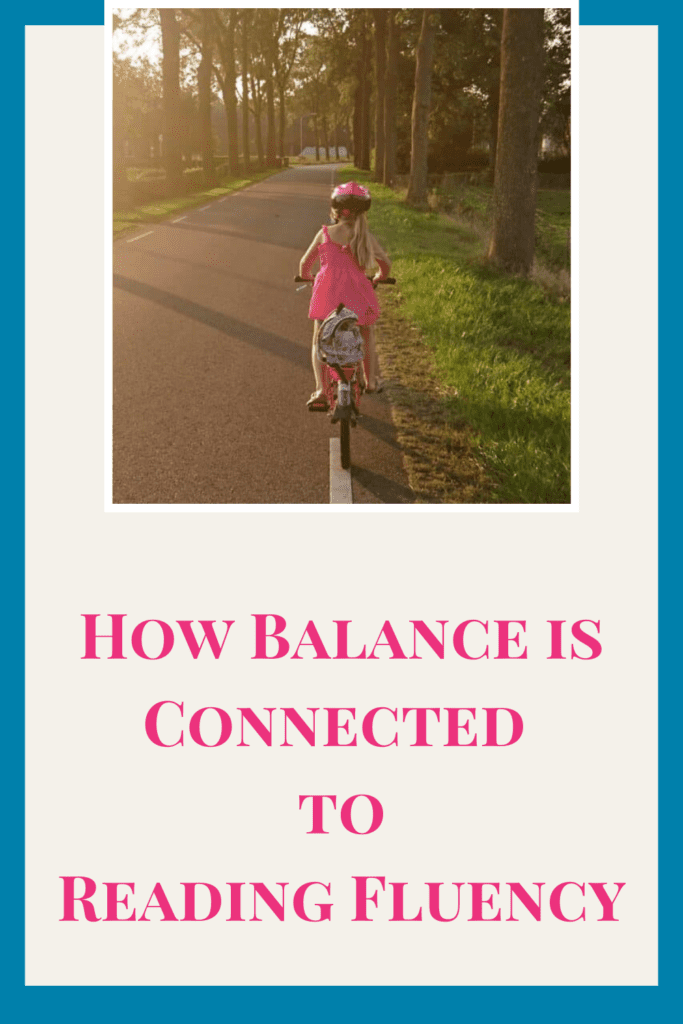Did you know that when astronauts spend time in space, they can develop ‘space dyslexia’ upon returning to Earth? Until their body adjusts to gravity and they re-train their vestibular and proprioceptive system, reading can suddenly become the same laborious or even impossible task that it is for so many kids with reading disorders.
When I tell people their child’s sense of balance or vestibular system might be the cause of their child’s reading and writing and even learning difficulties, they are often skeptical.
The Vestibular System is Connected to Good Visual Processing
The vestibular system is most widely known for its role in balance, but balance is not achieved simply through this system alone. It is the engagement of all the senses such as visual, auditory, tactile, as well as information from the proprioceptive system and its muscle and joints that helps your child maintain balance.
The vestibular system sends information from the nervous system to the eyes which in turn regulates the movement of the eyes.
Where Reading Breakdown Can Happen
Without a well-developed vestibular system, there will be poor hand-eye coordination which research has shown is a factor in dyslexia, as well as other learning difficulties like dysgraphia and dyspraxia.
Imagine trying to read and write while on a ride that makes you constantly feel off balance and you will begin to know what many struggling students are experiencing on a daily basis.
How the Vestibular System Stabilizes the Eyes
The cerebellum is both responsible for learning and movement and it is also connected with vestibular function. The vestibular system activates the postural muscles such as the core muscles.
If these muscles are not strong or well developed then your child may have difficulty focusing their eyes on a target such as words on a page, copying information from the board or with coordination for sports.
Since the vestibular system stabilizes your child’s eyes, breakdown in reading, writing and learning content from literacy-based subjects can all occur when this system is weak.
What Reading & Writing Breakdown Looks Like When the Vestibular System is Weak
When balance, coordination and stability of the eyes is poor, it is not uncommon for a child to reverse letters, numbers, have eye tracking difficulties or to complain that letters move or blur.
Reading comprehension is often poor because these kids are using so much of their concentration and attention just to decode that there is room left for understanding the meaning of a text. So often these problems can go unnoticed because for these kids this is the only ‘normal’ they know.
Addressing reading issues in a way that moves past limitations like IEP’s and tutoring must begin with a bottom up approach by addressing weak lower brain levels. It is these areas of underdevelopment that are the very reason why so many kids cannot reach the same reading level as their peers.
Phonics programs, tutoring and extra practice will only produce mediocre results if the lower brain levels are underdeveloped.
If you want to learn more about my coaching programs that helps children move past limitations and rise above learning and behaviour difficulties–contact me for a free Clarity Call.
In Health & Wholeness,
Lorraine


